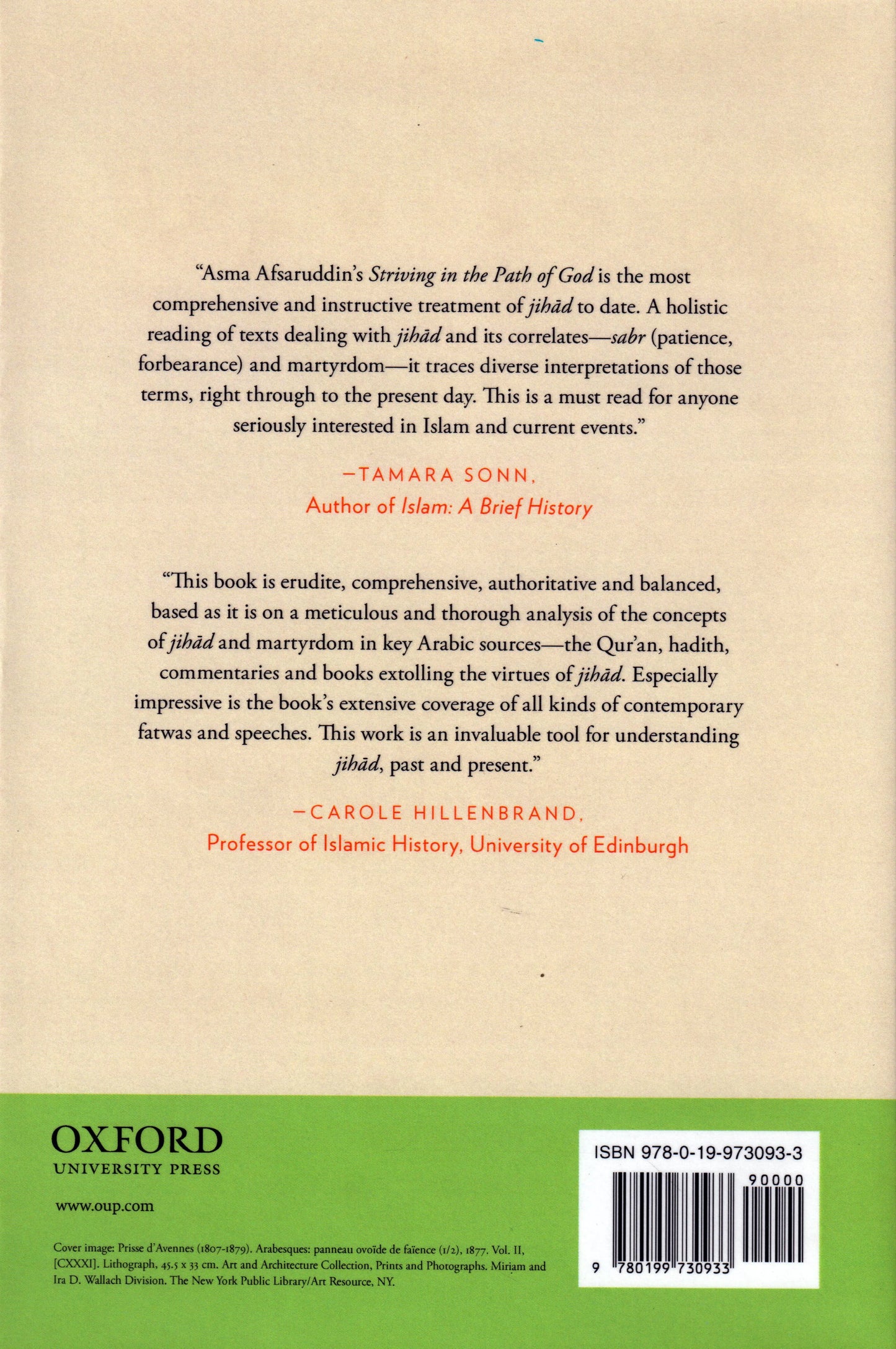In popular and academic literature, jihad is predominantly assumed to refer exclusively to armed combat, and martyrdom in the Islamic context is understood to be invariable of the military kind. This perspective, derived mainly from legal texts, has led to discussions of jihad and martyrdom as concepts with fixed, universal meanings divorced from the socio-political circumstances in which they have been deployed through the centuries.
Asma Afsaruddin studies in a more holistic manner the range of significations that can be ascribed to the term jihad from the earliest period to the present and historically contextualizes the competing discourses that developed over time. Many assumptions about military jihad and martyrdom in Islam are thereby challenged and deconstructed. Comprehensive interrogation of varied sources reveals early and multiple competing definitions of a word that in combination with the phrase fi sabil Allah translates literally to "striving in the path of God."
Contemporary radical Islamists have appropriated this language to exhort their cadres to armed political opposition, which they legitimize under the rubric of jihad. Afsaruddin shows that the multivalent connotations of jihad and shahid recovered from the formative period lead us to question the assertions of those who maintain that belligerent and militant interpretations preserve the earliest and only authentic understanding of these two key terms. Retrieval of these multiple perspectives has important implications for our world today in which the concepts of jihad and martyrdom are still being fiercely debated.
- Historically-grounded discussion of the varied meanings of jihad
- Close, the diachronic study of texts from different genres not usually consulted on this topic




